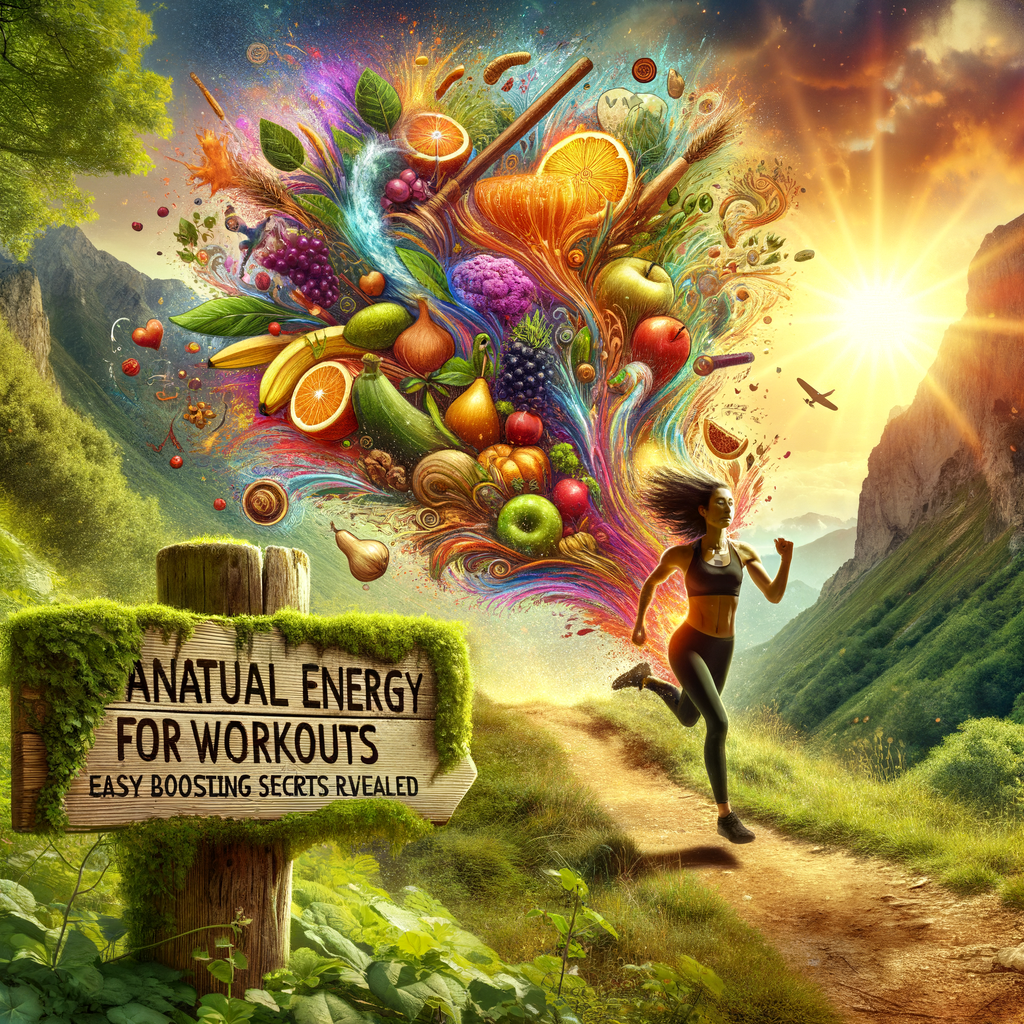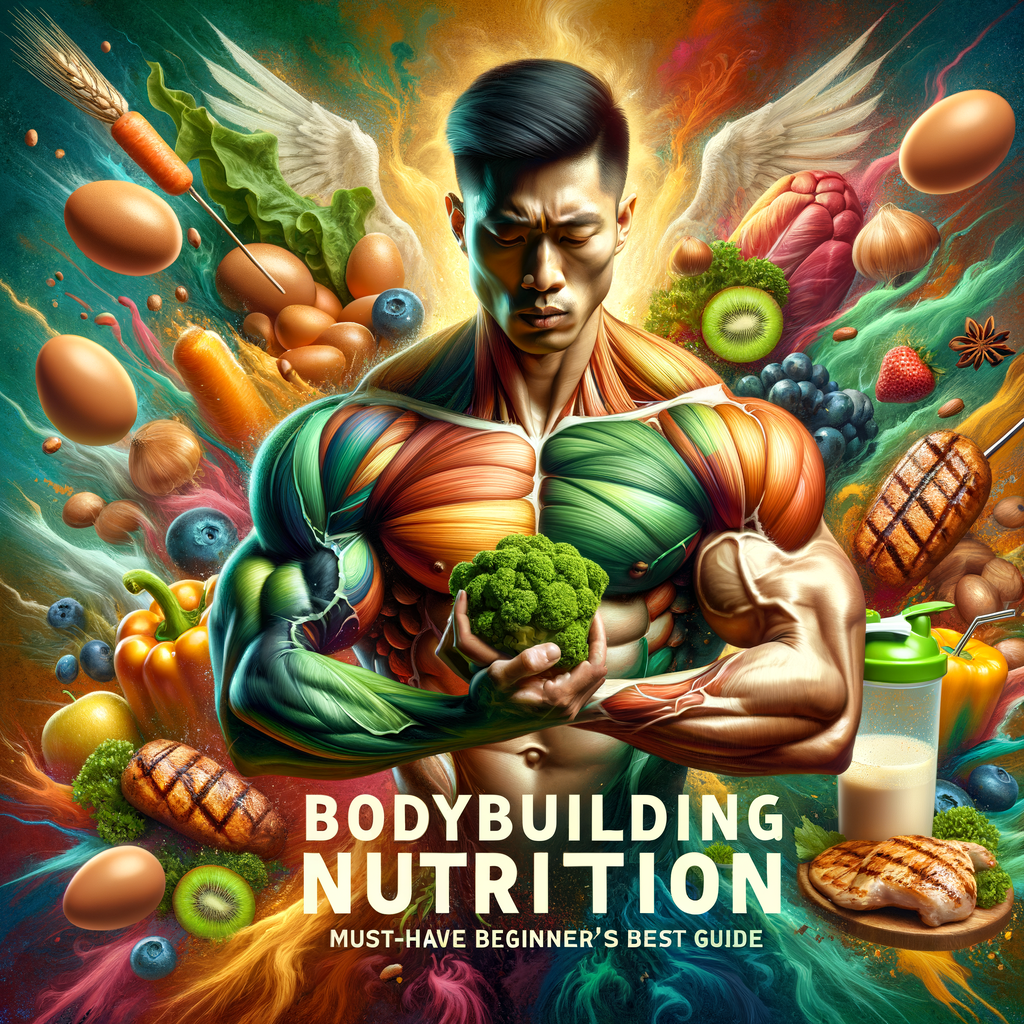- Understanding Natural Energy for Workouts
- Fueling Your Body with Nutrition
- The Power of Whole Foods
- Hydration: The Unsung Hero
- Timing Your Meals for Optimal Energy
- Pre-Workout Nutrition
- Post-Workout Recovery
- Exploring Natural Supplements
- Popular Options
- How to Use Supplements Wisely
- The Role of Exercise in Energy Levels
- Regular Physical Activity
- Rest and Recovery
- Sleep: The Foundation of Energy
- Stress Management Techniques
- A Holistic Approach
- The Connection Between Mind and Energy
- Mindful Energy Practices
- Listening to Your Body
- Establishing Consistency
- Natural Energy Sources You Didn't Know About
- Surprising Superfoods
- Herbs for Energy
- Creating a Personalized Energy Routine
- Understanding Your Needs
- Experimenting and Adjusting
- Conclusion
- FAQs
- 1. Can I rely solely on natural foods for energy?
- 2. How much water should I drink during workouts?
- 3. Are supplements necessary for energy?
- 4. What should I eat for long workouts?
- 5. How can I reduce exercise-related fatigue?
- 6. What are some quick snacks for pre-workout?
- 7. How can I manage stress effectively?
- 8. Is it essential to fuel post-workout?
- 9. How do I know if I’m well-hydrated?
- 10. Can natural energy be steadily increased?
- References
Understanding Natural Energy for Workouts
When it comes to maximizing your workout performance, having the right energy is crucial. Many people turn to energy drinks or supplements for a quick boost, but these options can come with unwanted side effects. Instead, let’s explore natural energy solutions that not only enhance your workouts but also promote long-term health.
Natural energy comes from nourishing your body with the right foods, hydration, and lifestyle choices. It’s about giving your body what it needs to perform optimally. This guide will reveal easy, practical ways to boost your energy naturally and sustainably.
Fueling Your Body with Nutrition
The Power of Whole Foods
Whole foods—those that are minimally processed—provide your body with vital nutrients. They contain vitamins and minerals needed for energy production. Fruits, vegetables, whole grains, nuts, and seeds can work wonders for your energy levels.
For example, bananas are rich in carbohydrates and potassium. These nutrients help maintain muscle performance during workouts. Oats are another fantastic option. They release energy slowly, keeping you fueled through intense training sessions. Incorporating these foods into your diet can lead to noticeable improvements in your workout stamina.
Hydration: The Unsung Hero
Staying hydrated plays a key role in energy levels and overall performance. Dehydration can lead to fatigue, decreased strength, and impaired focus. Drinking enough water helps transport nutrients to your cells and enables muscle contractions.
Aim for at least eight glasses of water daily, but more if you exercise regularly. You can also hydrate through fruits and vegetables. For instance, cucumbers and watermelon have high water content and also provide essential vitamins.
Here’s a quick guide to hydration:
| Activity | Water Intake |
|————————-|—————————-|
| Light exercise (≤30 min)| 1-2 glasses before |
| Moderate exercise (30-60 min)| 2-3 glasses before and after|
| Intense exercise (>60 min)| 3+ glasses during and after|
Timing Your Meals for Optimal Energy
Pre-Workout Nutrition
Knowing what to eat before a workout can significantly impact your energy levels. Consuming a balanced meal 2-3 hours before exercising is optimal. This meal should include carbohydrates for energy, protein for muscle support, and healthy fats for satiety.
Easy options include a smoothie made with spinach, banana, and almond milk, or a bowl of oatmeal topped with berries and nuts. These foods provide not just energy but also nutrients that assist in muscle recovery.
Post-Workout Recovery
Recovery is just as important as preparation. After a workout, your body needs to replenish glycogen stores and repair muscles. Aim to eat a balanced meal within 30 minutes of finishing your workout. Including lean proteins like chicken or tofu combined with complex carbohydrates like quinoa or whole grain toast will help restore your energy.
Don’t forget healthy fats! Including sources like avocado or olive oil can also aid in nutrient absorption and help you feel fuller longer.
Exploring Natural Supplements
Popular Options
While whole foods should be your primary source of nutrients, some natural supplements can provide an extra boost. Here are a few options:
– Beetroot Powder: This supplement aids blood flow and endurance. Its high nitrate content improves workout performance.
– Matcha Green Tea: Rich in antioxidants, matcha provides a gentle caffeine boost without the jitters associated with coffee. It also enhances focus.
– Spirulina: This blue-green algae is packed with protein and essential nutrients. It’s a great addition to smoothies.
How to Use Supplements Wisely
When considering natural supplements, always prioritize quality. Look for organic, non-GMO options from reputable brands. Start with small doses to observe how your body reacts. Keep in mind that supplements should complement a healthy diet, not replace it.
The Role of Exercise in Energy Levels
Regular Physical Activity
Engaging in regular exercise is one of the best ways to boost natural energy levels. Physical activity enhances circulation, strengthens muscles, and increases overall endurance. Over time, your body adapts, making workouts feel less strenuous.
Aim for a mix of cardiovascular exercises, strength training, and flexibility workouts. Even short bursts of physical activity can elevate your energy. Activities like brisk walking, cycling, or yoga can all be beneficial.
Rest and Recovery
Balancing workouts with adequate rest is essential for maintaining energy. Your muscles need time to repair after intense sessions. Failing to rest can lead to fatigue and injury. Aim for at least one complete rest day per week, and listen to your body’s signals.
Sleep: The Foundation of Energy
Never underestimate the power of a good night’s sleep. Sleep is essential for recovery and energy replenishment. Aim for 7-9 hours of sleep each night to help repair your body and recharge your mind. Establish a calming bedtime routine and minimize screen time before bed to improve sleep quality.
Stress Management Techniques
A Holistic Approach
Stress can drain your energy and impact your performance. Finding effective stress-relief techniques helps enhance your natural energy levels. Activities like meditation, yoga, or deep breathing exercises promote relaxation and increase focus.
Taking short breaks during the day can also relieve stress. Step outside for fresh air, practice mindfulness, or engage in light stretching. These simple actions can re-energize your mind and body.
The Connection Between Mind and Energy
Staying mentally engaged and positive can also boost your physical energy. Avoid negative thoughts, which can sap your enthusiasm for workouts. Instead, focus on your goals and celebrate small victories to maintain motivation.
Mindful Energy Practices
Listening to Your Body
Being in tune with your body can significantly enhance your natural energy levels. Pay attention to how different foods and activities make you feel. Keeping a food and exercise journal can help you identify patterns and adjust accordingly.
If you notice specific foods or routines impacting your energy negatively, consider modifying your approach. It’s all about finding what works best for you.
Establishing Consistency
Establishing a consistent routine is another vital aspect of boosting natural energy. Try to eat, exercise, and sleep at the same times each day. This consistency trains your body to operate more efficiently, leading to improved energy levels.
Natural Energy Sources You Didn’t Know About
Surprising Superfoods
Some lesser-known superfoods can provide a significant energy boost. Here are a few to consider:
– Chia Seeds: These tiny seeds are packed with omega-3 fatty acids, fiber, and protein. They can keep you feeling full longer and provide sustained energy.
– Maca Root: This adaptogenic herb increases stamina and endurance. It can easily be incorporated into smoothies or oatmeal.
– Coconut Water: A great hydrating option, it’s rich in electrolytes and provides quick energy without added sugars.
Herbs for Energy
Certain herbs can enhance your energy levels and improve focus. Ginseng is a popular option known for its ability to reduce fatigue and boost stamina. Ashwagandha is another adaptogen that helps your body manage stress, ultimately contributing to better energy levels.
Creating a Personalized Energy Routine
Understanding Your Needs
Creating a personal energy-boosting routine requires understanding your unique needs. Take time to assess your lifestyle, dietary preferences, and activity levels. Set realistic fitness and nutrition goals based on this assessment.
Experimenting and Adjusting
Remember that what works for one person may not work for another. Experiment with different foods, supplements, and workouts to find your perfect balance. Be patient, as it may take time to see results.
Conclusion
Boosting your energy naturally for workouts is a multifaceted approach. By focusing on nutrition, hydration, timing, stress management, and sleep, you can enhance your performance and overall well-being. Remember to listen to your body, remain consistent, and adjust your routine as needed. Natural energy is within reach; you just need to tap into it!
FAQs
1. Can I rely solely on natural foods for energy?
Yes, focusing on whole, nutrient-dense foods can provide sustained energy for workouts.
2. How much water should I drink during workouts?
Aim for 1-2 glasses before exercising and sip on water throughout your workout.
3. Are supplements necessary for energy?
Not necessarily. A balanced diet can supply most of your energy needs. Supplements can boost energy but should not be your primary source.
4. What should I eat for long workouts?
Complex carbohydrates like whole grains, along with proteins, are ideal for long workouts. Foods like oats or quinoa are excellent choices.
5. How can I reduce exercise-related fatigue?
Ensure proper hydration, nutrition, and recovery. Also, pay attention to your sleep schedule.
6. What are some quick snacks for pre-workout?
Good options include bananas, nuts, yogurt, or a protein smoothie. Choose something easily digestible.
7. How can I manage stress effectively?
Incorporate techniques like deep breathing, meditation, and regular exercise into your daily routine.
8. Is it essential to fuel post-workout?
Yes, a balanced meal after exercise is important for recovery and restoring energy levels.
9. How do I know if I’m well-hydrated?
Light urine color is a good indicator of hydration. If urine is dark, drink more water.
10. Can natural energy be steadily increased?
Yes! With consistent practices in nutrition, hydration, and exercise, you can steadily enhance your energy levels.
References
1. Centers for Disease Control and Prevention. (CDC). “Healthy Weight.” CDC
2. Mayo Clinic. “Nutrition and Healthy Eating.” Mayo Clinic
3. Harvard Health Publishing. “The Nutritional Benefits of Oats.” Harvard Health
4. National Institutes of Health. “Ginseng.” NIH
5. U.S. Department of Health and Human Services. “Physical Activity Guidelines.” HHS
By embracing these natural energy-boosting methods, you set the stage for not just better workouts, but enhanced overall life quality. Happy energizing!



